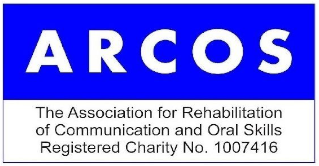Compensation Claims Guidance
Brain Injury Compensation Claims: Guidance for Clients and Families
Research reveals that there are around 350,000 annual hospital admissions for acquired brain injury. The causes vary, ranging from accidents at work or on the road, to assaults and clinical negligence. A brain injury can affect every aspect of your life. Suitable support at every stage of the rehabilitation process is paramount to your recovery.
If you are going to make a brain injury claim, it’s important to understand how the injury is diagnosed and assessed.
Establishing Evidence of a Brain Injury
Glasgow Coma Score – Adults
The Glasgow Coma Scale (GCS) assesses the patient’s consciousness level through the patient’s ability to open their eyes, move and speak. The total score is calculated by adding up the scores from the three categories which are classified as:
- Severe: GCS 8 or less
- Moderate: GCS 9 – 12
- Mild: GCS 13 – 15
Paediatric Glasgow Coma Score – Children
GCS is not used with children, especially those who are too young to have reliable language skills. The Paediatric Glasgow Coma Score (PGCS) is a modification of the scale used on adults which still uses the three tests (eye, verbal and motor responses) with a slightly altered grading scale but with the same classification of severity.
Telephone: 01603 214 220

How we
can help you
Brain injuries can have a wide range of effects, many of which may not be obvious immediately after an accident. As a member of the Association of Personal Injury Lawyers (APIL), AvMA, Brain Injury Group and The Law Society for Personal Injury and Clinical Negligence, our team has represented victims in a wide range of cases.
To find out more about our expertise, please call:
Effects of Brain Injury
Physical: Affecting how the body works
Symptoms include:
- Slowed mobility
- Balance problems
- Dizziness
- Stiff/weak limbs – spasticity
- Weakness – hemiparesis
- Paralysis – hemiplegia
- Irregular uncontrolled movement, shaking/clumsiness – ataxia
- Sensory impairment – loss or exaggeration of sensation, eyesight affected
- Fatigue – excessive tiredness with otherwise everyday tasks
- Difficulties with speech
- Epilepsy
- Hormonal imbalance – mood swings, muscle weakness, fluctuating body weight
- Sexual functioning and wellbeing
These symptoms may affect one side of the body more than the other depending on the side of the brain that is injured (each half of the brain controls the opposite side of the body).
Cognitive: Affecting how the person thinks, learns and remembers
Symptoms include:
- Problems with short-term memory/working memory
- Language loss – aphasia
- Impairment of visual-perceptual skills
- Reduced initiation and problems with motivation
- Reduced concentration span
- Reduced information processing ability
- Repetition
- Impaired reasoning – ability to think logically, understand rules, follow discussions
- Impaired insight and empathy
- Reduced problem-solving ability
These cognitive effects can collectively be referred to as ‘executive dysfunction’. These symptoms can make it difficult for a person with a brain injury to involve themselves in social interactions with their family, friends and co-workers. It can also affect their ability to undergo day-to-day tasks and their usual job role duties.
Emotional and Behavioural: Affecting how the person feels and acts
Symptoms include:
- Personality changes
- Mood swings
- Depression
- Sense of loss
- Anxiety
- Frustration and anger
- Disinhibition
- Abusive or obscene language
- Impulsiveness
- Obsessive behaviour
- Loss of confidence
Many of these effects may occur in any combination and there may be other less common effects that are experienced after brain injury. The effects are such that they affect individuals as well as their families after brain injury, with the severity of the symptoms depending on the severity of their injury and the area of the brain affected.
Is there a time limit for brain injury compensation claims?
- Court proceedings must start within three years of the date of the incident
- The time limit does not apply if the injured person is under 18 years old at the time of injury (when the time limit is extended until that person’s 21st birthday)
- The time limit does not apply to someone unable to manage their own affairs under the Mental Capacity Act 2005 criteria
- A victim of criminal assault has the right to see compensation from the Criminal Injuries Compensation Authority (CICA) which imposes a two-year time limit to make an application (although the CICA can apply their discretion to permit cases outside this time period).
The Rehabilitation Process
Brain injury rehabilitation
Rehabilitation is a process of assessment, treatment and management by which an individual, and their family and carers, are supported to achieve their maximum potential for physical, cognitive, social and psychological function in their participation in society and quality of living.
During recovery, other parts of the brain can take over activities of the damaged areas and new nerve pathways can be established. Through engaging in activity, alternative pathways can develop to allow the brain to reorganise itself to an extent, to regain lost function.
Insurance companies may provide financial help to assist with your rehabilitation in the form of interim payments before brain injury compensation is awarded.
It may not be possible to secure interim payments where it is difficult to establish liability. In such circumstances, your solicitor should seek to ensure that wherever possible you receive help from statutory bodies.
Case manager
A case manager may be employed to organise the support and care you need.
Further support workers may visit you as often as necessary to provide essential support and assistance.
Care and adaptations following brain injury:
It may be preferable to have a staged discharge from hospital, which could involve returning home once or twice a week or an overnight stay to establish whether any adaptations will be needed for the home.
An occupational therapist from the hospital/rehabilitation team/social services should visit the home initially to assess your needs and any home adaptations (such as wheelchair ramps, handrails) that may be required.
Community Care Services:
A relative caring for you may be entitled to community care services such as:
- Help with bathing/washing
- Help with getting up/going to bed
- Help with shopping
- Help with cleaning, cooking, tidying
- Adaptations to the home
- Help with transport
- The local authority can charge for services if your assets exceed certain financial thresholds.
Occupational Therapist – recommended adaptations may include;
- Widening doors and installing ramps
- Providing or improving access to rooms and facilities (stairlift, downstairs bathroom)
- Adapting heating/lighting controls for easier use
Other Factors
The Impact of Brain Injury on the Family
Acquired brain injury can be very sudden. Families have to adjust to large changes in a short space of time.
Two qualities help all parties to cope with these changes and assist in the vital rehabilitation process:
- Ability to be flexible
- Ability to communicate openly and honestly, directly expressing emotions
The recovery process involves progression through several phases with the support of caregivers. Although it can be long and demanding for both the injured and the family, there can be positive changes and the strengthening of relationships. The support networks available to assist families can provide care in areas that you may not have considered.
Each person’s coping strategy is different and the following recommendations may apply to your situation:
Structure
- Establish and maintain a daily routine
- Allow the person to rest frequently
- Be natural with the person and help them maintain their former status in the family
Support
- Try not to overwhelm them
- Point out every gain the person has made since the onset of the injury – try to keep a diary of progress
- Avoid making the person feel guilty for mistakes and accidents, such as spilling a drink.
Avoid overstimulation
- Restrict the number of visitors (one or two at a time)
- Take it in turns to speak and listen to each other
- Present only one thought or command at a time
- Use a calm, soft voice when speaking
- Avoid crowded places, such as shopping centres and stadiums.
Safety Guidelines: In the home:
Create an environment that is as safe as possible for the person. This is essential for someone who is confused or has impaired judgment and may be unable to remember where dangers lie:
- Keep clutter out of the hallway and off the stairs
- Remove breakables and dangerous objects (matches, knives)
- Keep medications in a locked cabinet/drawer
- Make adjustments to the person’s bed – such as keeping the bed low or installing side rails
- Make sure rooms are well lit at night to help prevent falls
Hatch Brenner Solicitors is proud to be a long term supporter of Headway Norfolk & Waveney – a brain injury charity that offers a variety of support needs in the local community. Contact them on 01603 214 220 or [email protected]
Care Organisations:

Helpline: 0300 123 1053
Email: nhs.uk/contact-us/
Our insights
Delivering thought-leading expertise and understanding from our expert solicitors and staff.
-

Legal Aspects of Diffuse Axonal Injury Claims in the UK
Diffuse Axonal Injury (DAI) is a severe form of traumatic brain injury with profound and lasting effects on individuals. From a legal standpoint, DAI cases present unique challenges and considerations, necessitating a nuanced approach to ensure justice for the affected parties.
-

85k settlement for employee claimant with no memory of injury
He was tasked by his employer with loading a flat bed lorry in readiness for his deliveries later that day. The Claimant was later found unconscious next to the lorry with clear signs that he had sustained trauma to his head.





